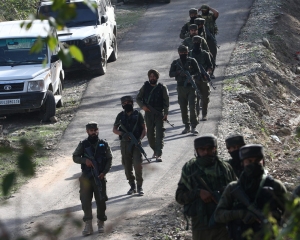India accounted for 27 per cent of the 10 million people who developed tuberculosis in 2017, the highest among the top 30 high TB burden countries in the world, according to the latest report by the World Health Organisation. Globally, the report said, the best estimate is that 10 million people developed TB disease in 2017. Of these, 5.8 million are men, 3.2 million women and one million children.
What’s worst for India was that it was home to almost half of the world’s cases which were resistant to TB drugs at 24 percent followed by China (13 percent), and Russia (10 percent), as per the 2018 edition of the Global Tuberculosis Report, released here recently.
The report, which provides a comprehensive and up-to-date assessment of the TB epidemic and progress in the response at global, regional and country levels, however, noted that estimates of TB incidence and mortality for India are interim, pending results from the national TB prevalence survey planned for 2019/2020.
The Worldwide contracted TB that was resistant to rifampicin, “the most effective first-line drug.” Of this number, 82 percent had multidrug-resistant TB. And of the MDR-TB cases, 8.5 percent were extensively drug resistant, or unresponsive to four anti-TB drugs namely Rifampicin, isoniazid, any of the fluoroquinolone antibiotics, and at least one of the three injectable second-line drugs.
There were cases in all countries and age groups, but overall 90 per cent were adults, and nine per cent were people living with HIV.
Of the global total, two-thirds were in eight countries alone — India 27 per cent; China nine per cent; Indonesia eight per cent; the Philippines six per cent; Pakistan five per cent; Nigeria four per cent; Bangladesh four per cent and South Africa three per cent.
The TB number has been increasing since 2013, mainly due to increased reporting of detected cases by the private sector in India, following the introduction of a national policy of mandatory notification in 2012 and the rollout of a nationwide web-based and case-based reporting system (called ‘Nikshay’) that facilitates reporting of detected cases by care providers in the public and private sectors.
India accounted for 32 per cent of global TB deaths among HIV-negative people, and for 27 per cent of the combined total TB deaths in HIV-negative and HIV-positive people.
























